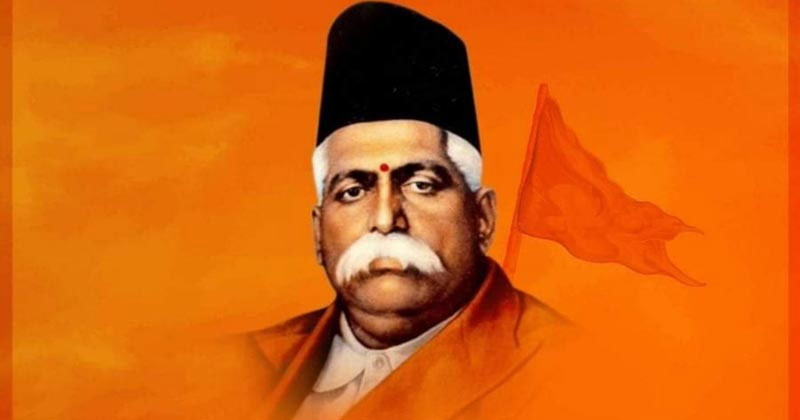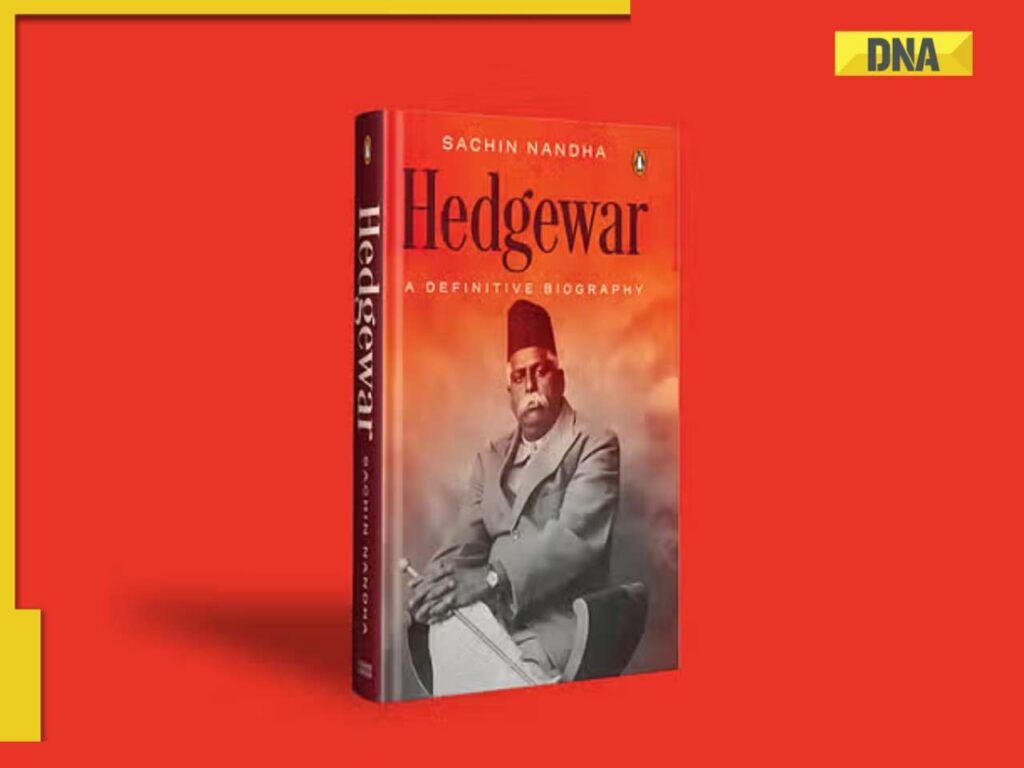Published by Penguin India, Sachin Nandha’s book ‘Hedgewar: A Definitive Biography’ is an ambitious attempt to illuminate the life and legacy of Keshav Baliram Hedgewar, the founder of the Rashtriya Swayamsevak Sangh.
‘Hedgewar: A Definitive Biography’
At a time when the RSS has successfully expanded itself in the length and breadth of the country with its more than 73,117 ‘shakhas’ functioning, Sachin Nandha’s book ‘Hedgewar: A Definitive Biography’ has a different significance. Published by Penguin India, it is an ambitious attempt to illuminate the life and legacy of Keshav Baliram Hedgewar, the founder of the Rashtriya Swayamsevak Sangh. The book shows that the writer has meticulously researched every aspect of his work; he took Nandha seven years to complete it.
The book offers a fresh perspective on a figure often shrouded in enigma and controversy. A British-Indian author with a background in private equity and philosophy, Nandha brings a unique outsider-insider lens to the narrative, as he blends rigorous historical analysis with a philosophical exploration of Hedgewar’s vision of cultural nationalism.
‘Hedgewar: A Definitive Biography’ traces the RSS founder’s journey from an orphaned childhood in colonial India to the architect of the RSS, considered the biggest non-government organization of the world. Established in 1925, the Hindutva outfit has evolved into an organization that is much more than what appears. Set against the backdrop of India’s struggle for independence, communal tensions, and the challenges of modernity, Nandha examines Hedgewar’s interactions with towering contemporary political figures like Mahatma Gandhi, Jawahar Lal Nehru, Vinayak Damodar Savarkar, and Subhash Chandra Bose.
The author has not limited himself in presenting a hagiography or a critique; he has written the biography that positions Hedgewar as a complex human being. He has shown him as a strategist, freedom fighter, and thinker whose ideas continue to shape India’s socio-political landscape a century later.

One of the book’s strengths is its depth of research. Nandha draws from RSS archives and other historical sources to uncover lesser-known facets of Hedgewar’s life, such as his early revolutionary zeal and his deliberate choice to build a grassroots movement over aligning with mainstream political factions like the Congress or Hindu Mahasabha. The narrative delves into Hedgewar’s philosophy, which Nandha terms “Hedgewarism”—a blend of cultural nationalism aimed at unifying India’s diverse Hindu society while eschewing the divisive tendencies of caste and creed. This distinction between cultural and political nationalism is a key theme, offering readers a framework to understand the RSS’s ethos beyond its contemporary political associations.
The storytelling is vivid and engaging, making the book accessible to both casual readers and those with a keen interest in Indian history. Nandha’s global perspective, informed by his Western education and Indian heritage, adds nuance, particularly when he explores how Hedgewar’s ideas resonate in today’s India—a nation grappling with its identity on the global stage. The biography also tackles Hedgewar’s internal struggles, such as his critique of Hindu society’s fragmentation, providing a balanced portrayal that avoids sanctification or vilification.

However, the book is not without potential shortcomings. Given its subject’s polarizing legacy, some readers might find Nandha’s approach too sympathetic, especially if it sidesteps contentious aspects of the RSS’s history, such as its perceived role in communal dynamics. While Nandha aims to spark a conversation rather than provide a final verdict, this neutrality might frustrate those seeking a more critical stance. Additionally, at times, the philosophical detours—while insightful—could feel dense for readers primarily interested in a straightforward biography.
The release of the book coincides with the RSS’s centenary, which amplifies its relevance. Public figures like Maharashtra Governor C.P. Radhakrishnan have praised its portrayal of Hedgewar’s vision of unity, particularly in a modern context where “secessionist forces” remain a concern. Nandha himself has emphasised that understanding Hedgewar is essential to decoding modern India, a claim the book largely substantiates through its detailed historical and intellectual scaffolding.
Nandha has woven ‘Hedgewar: A Definitive Biography’ as a compelling and thought-provoking work that succeeds in humanising a towering yet elusive and controversial figure. The book has become a must-read for anyone seeking to grasp the origins of the RSS and its enduring influence, though it may leave readers with as many questions as answers—a fitting outcome for a book that aims to ignite dialogue. Nandha’s labor of love is both a tribute to Hedgewar’s legacy and a mirror reflecting India’s complex civilizational ethos. Whether you view Hedgewar as a visionary or a polarizing force, this biography offers a rich starting point for exploration.

